Pictures taken 12th May 2017.
All the flowering plants were growing in one small locality.
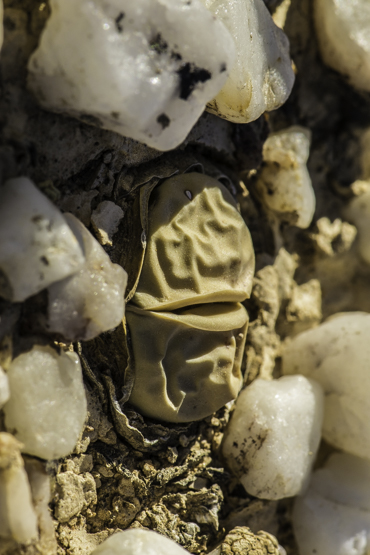
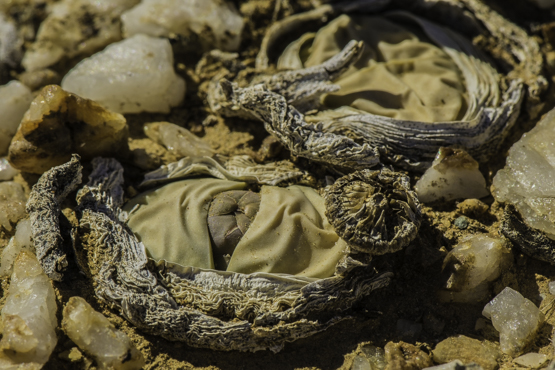
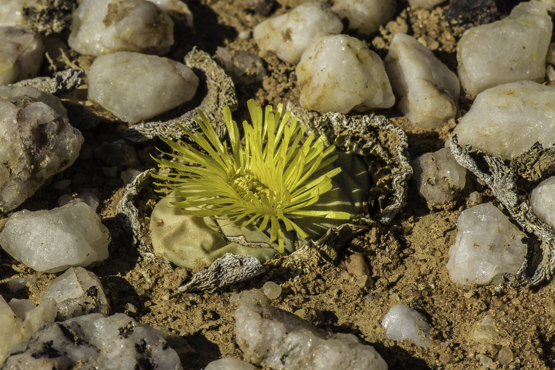
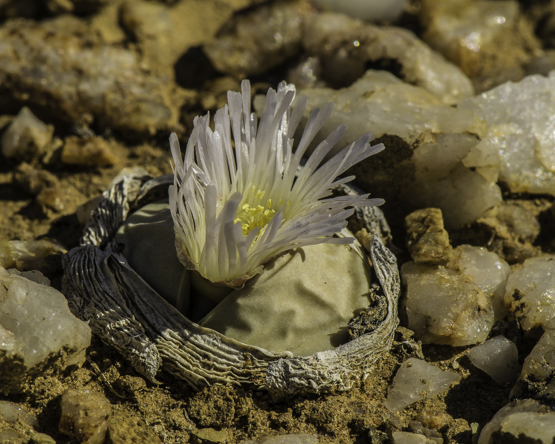
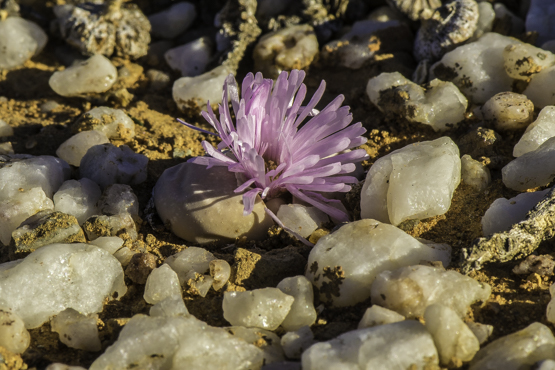
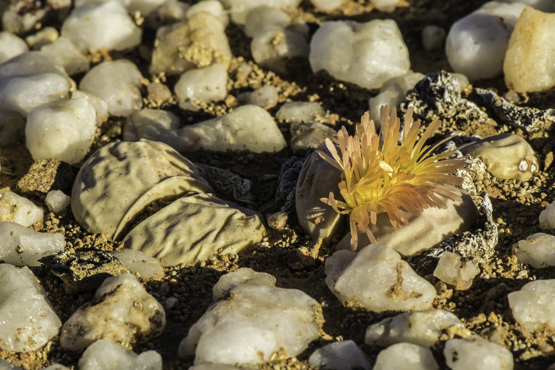
Pictures taken 12th May 2017.
All the flowering plants were growing in one small locality.






No less than 25 synoniems have been recorded for this species, so it will come as no surprise that it is quite variable.
As a rule, the plants consist of only one pair of leaves, rarely 2 or 3. These leaf-pairs are 20-50 mm long and 15-30 mm wide, sunken into the ground. Old leaves stay on the plants for 1 or 2 years.
The flowers appear in April – June; they are 20-50 mm in diameter and may be white, pink, red , magenta, or yellow (see part 2). Even within one population one can come across all these colours.
The plants are locally abundant on flats or slopes rich in quartz pebbles in the Vanrhynsdorp area.
The first 3 pictures were taken on 30 March 2012, # 4 early next morning. Last one: 3 Sept. 2010
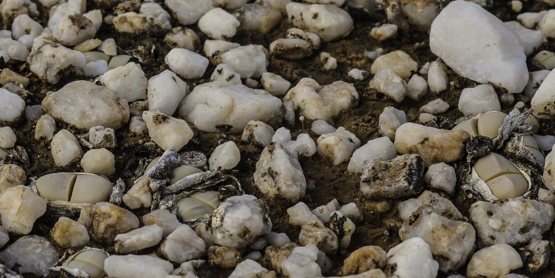
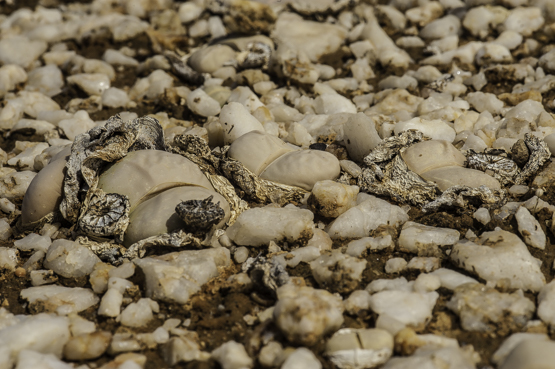
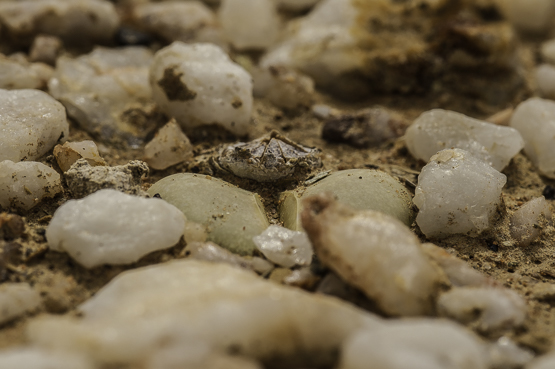
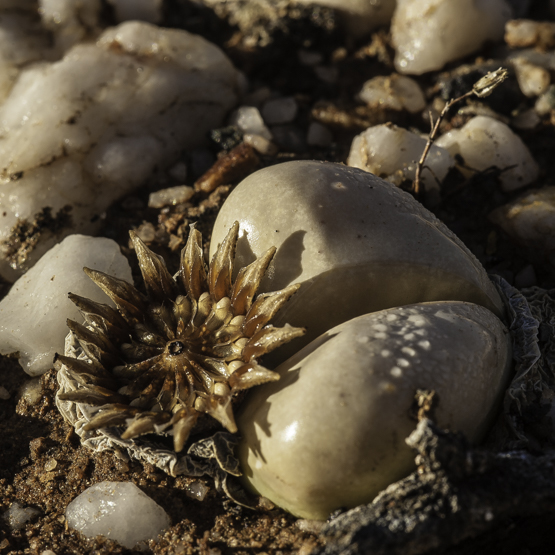
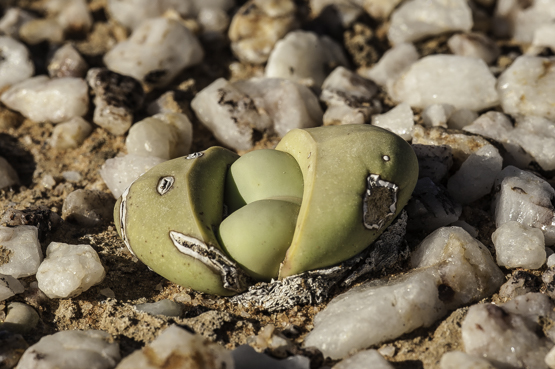
Earlier this month I was on an 8-day trip to Namaqualand with a couple of friends, hoping to see Argyrodermas and Conophytums in flower.
In spite of the drought we saw a lot of interesting plants, a few of which are pictured below.
Many other pictures should find their way into posts on succulents from the area.
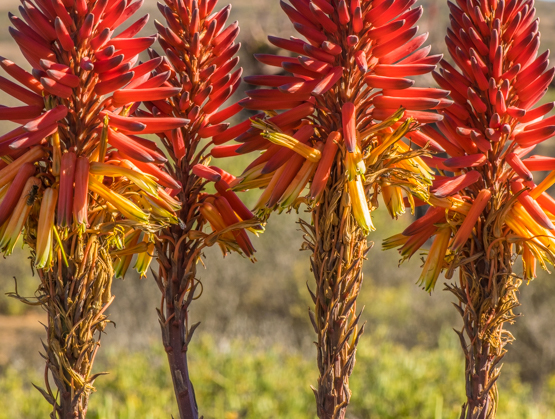
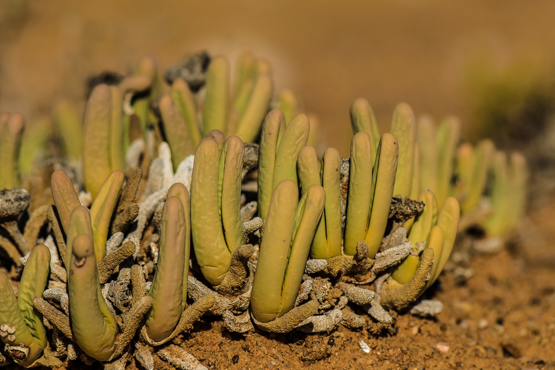
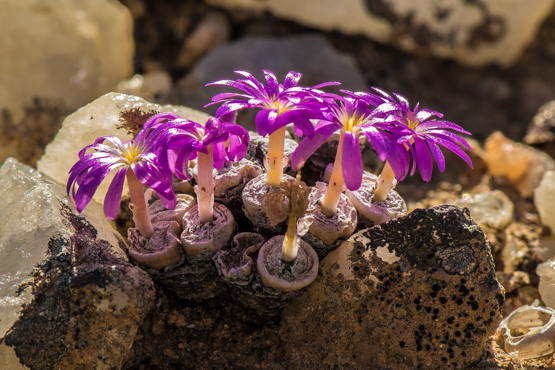
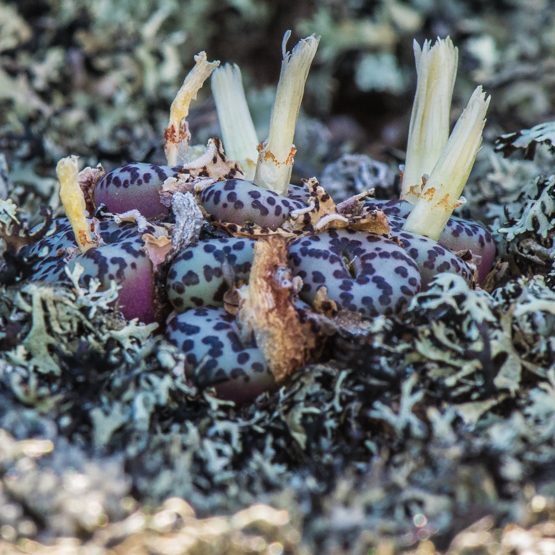
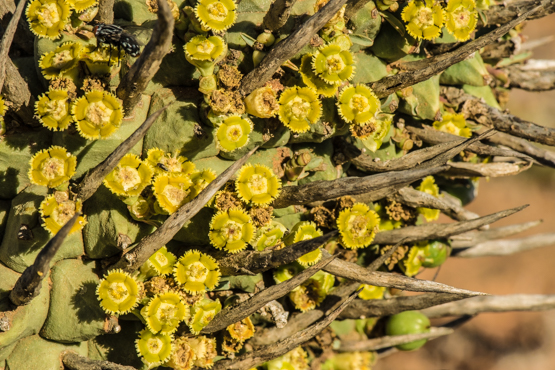
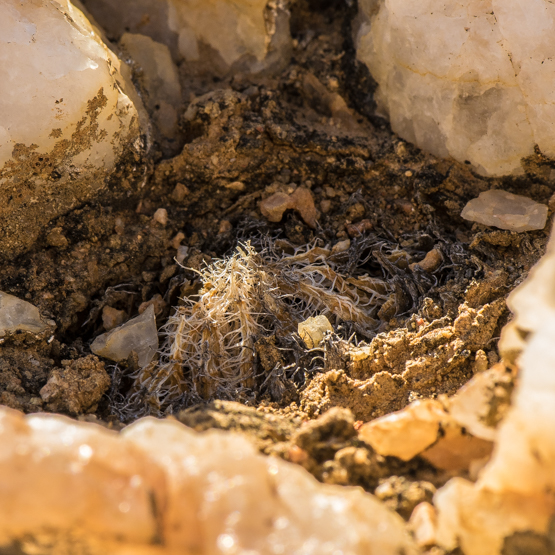
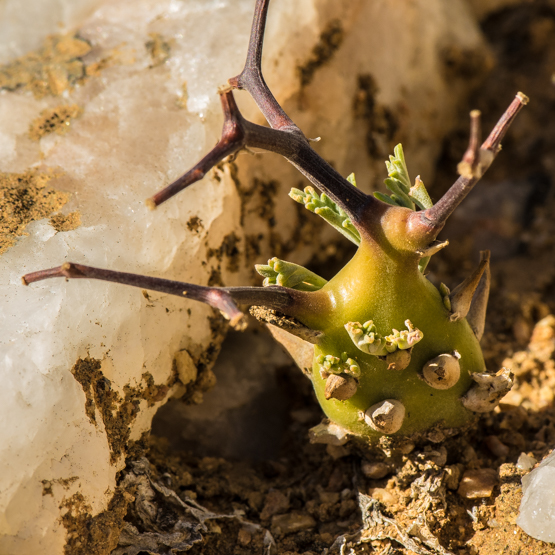
The first two pictures show E. enopla
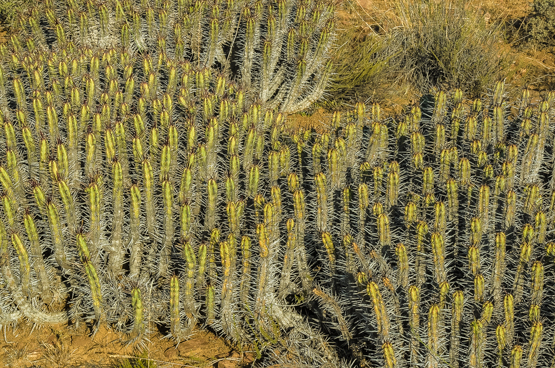
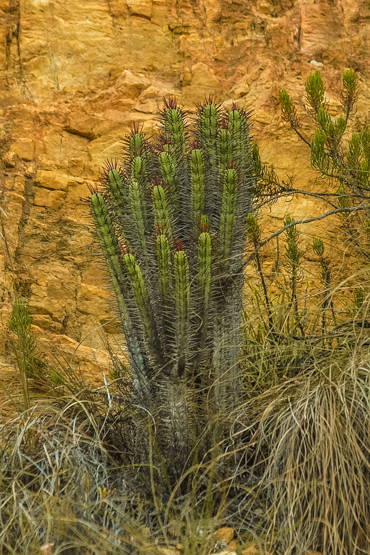
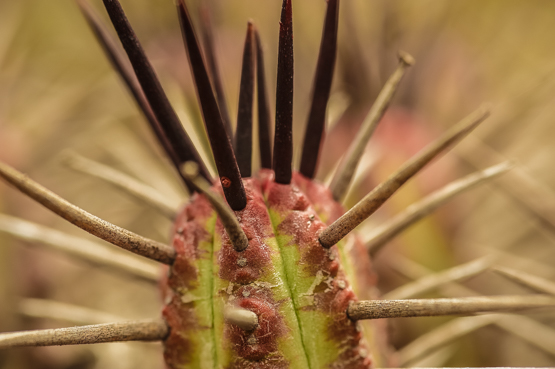
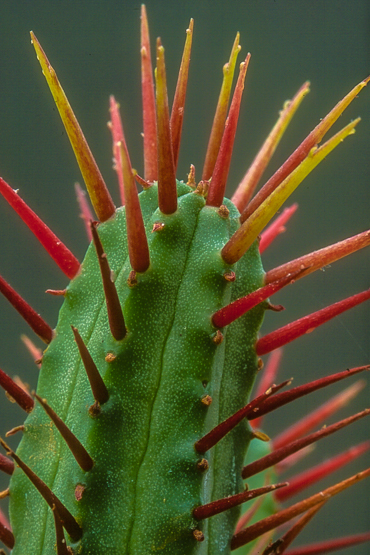
Plant in cultivation
Even a quick look at the pictures in the two parts of this post will tell you that this species comes in many guises.
No less than five varieties have been described in the past, but most experts do not accept them anymore. In addition to this, E. enopla and E. atrispina are now usually considered to be synoniems.
The plants are much-branched shrubs ranging in height between 7 and 130 cm and are either male or female. The branches are 1.5-3 cm in diameter and have 6-9 angles with obscure tubercles. They bear stout simple thorns (actually woody peduncles) 0.8-6 cm long.
One can come across this species in dry scrubland on stony north-facing slopes and rocky outcrops, from Ceres and Montagu in the West to Jansenville and Graaff-Reinet in the East.
First two examples of E. atrispina
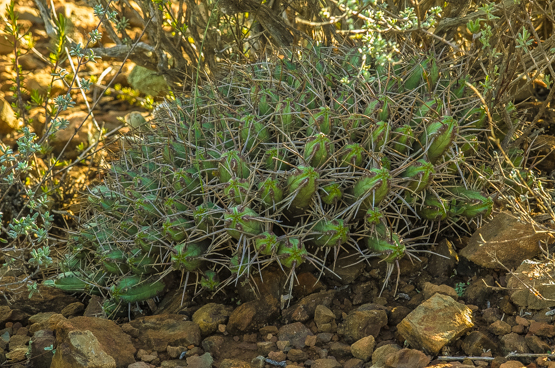
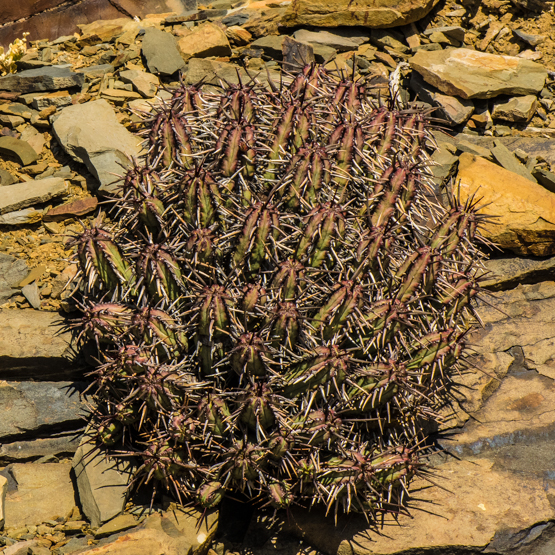
Pictures 3 and 4 show plants on the Oubergpass near Montagu
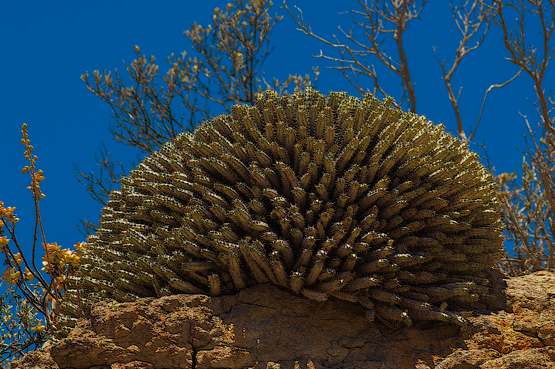
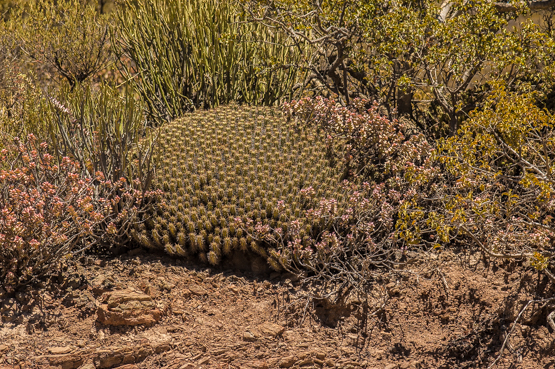
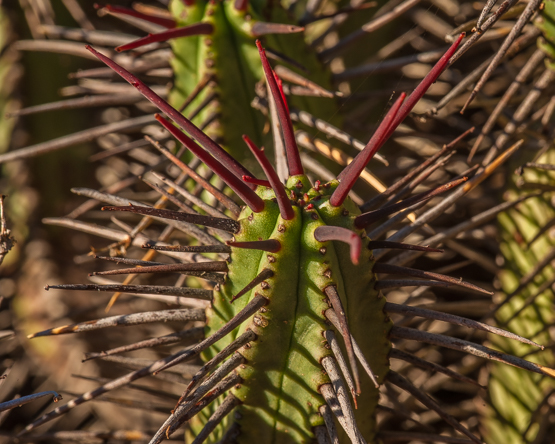
Typical E. heptagona